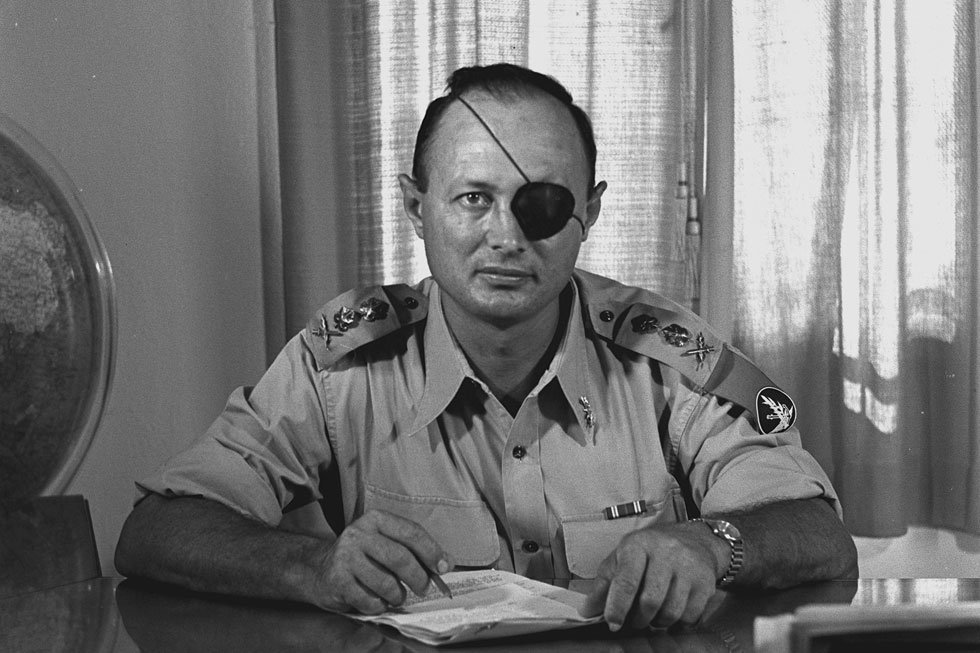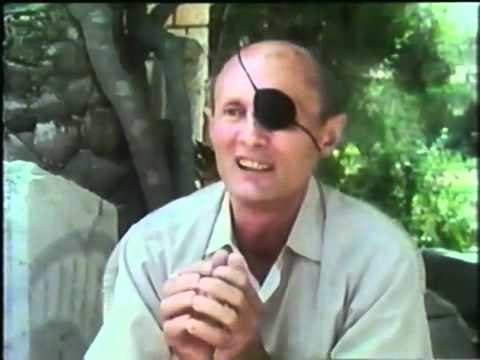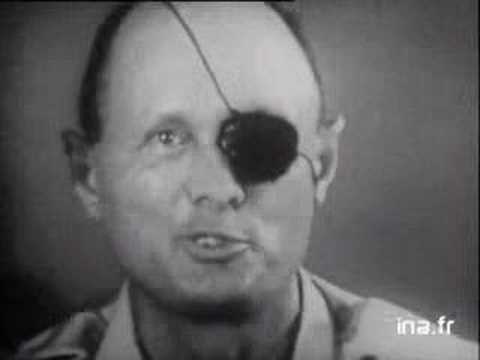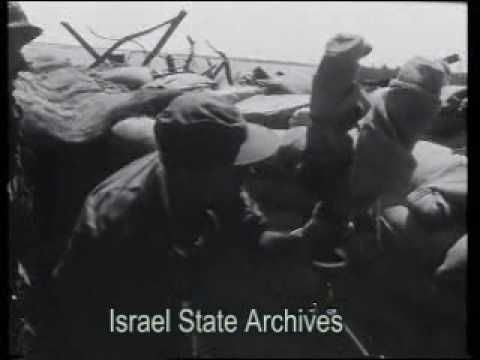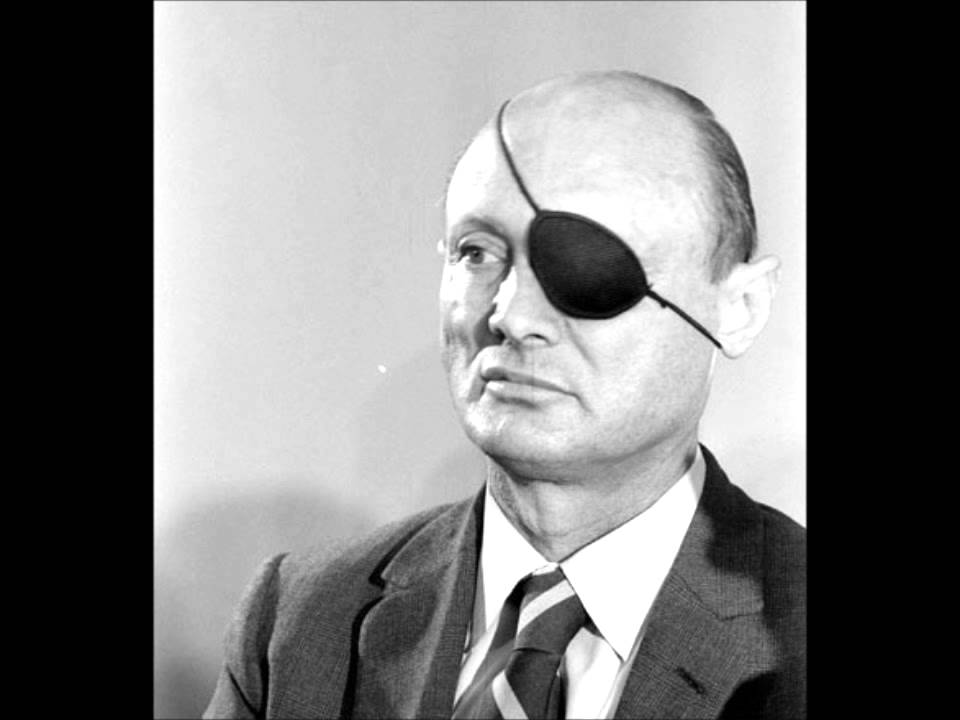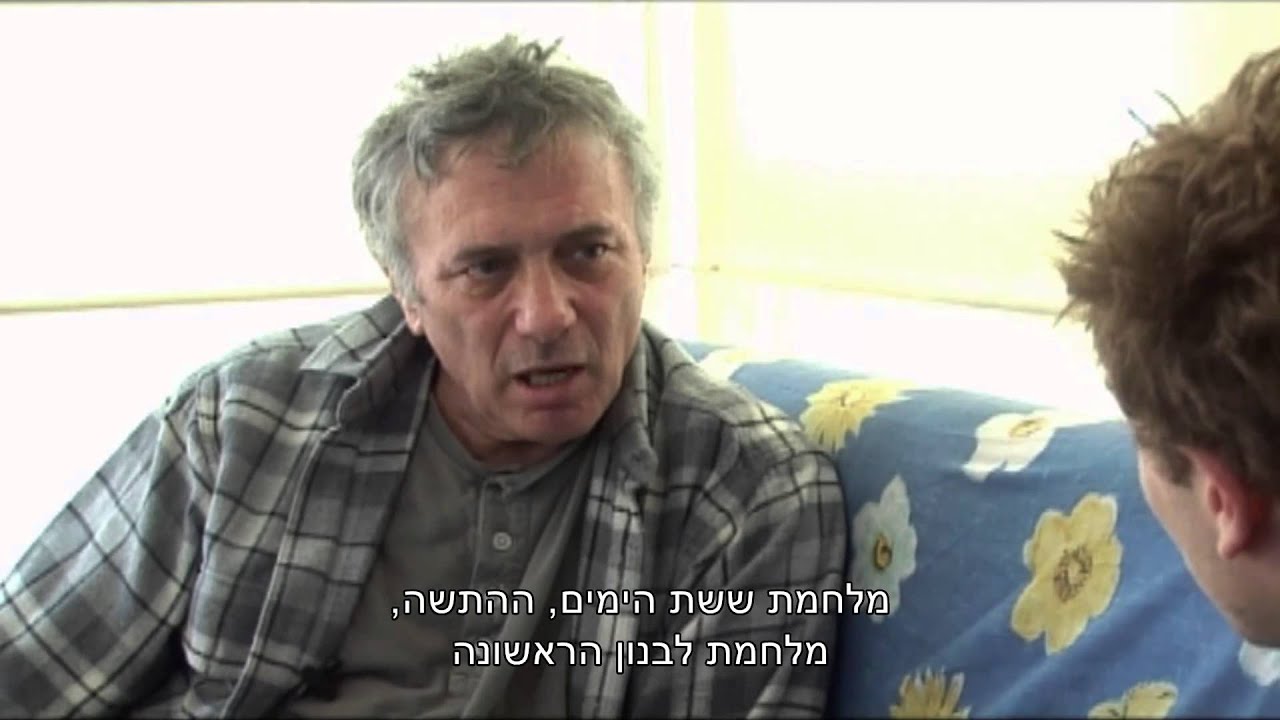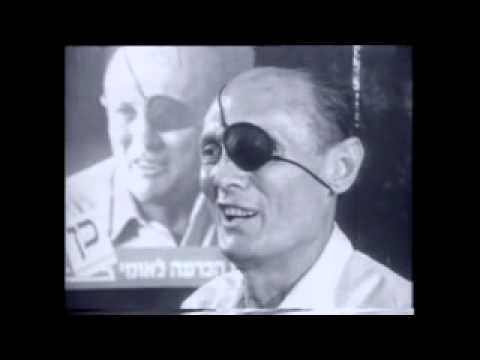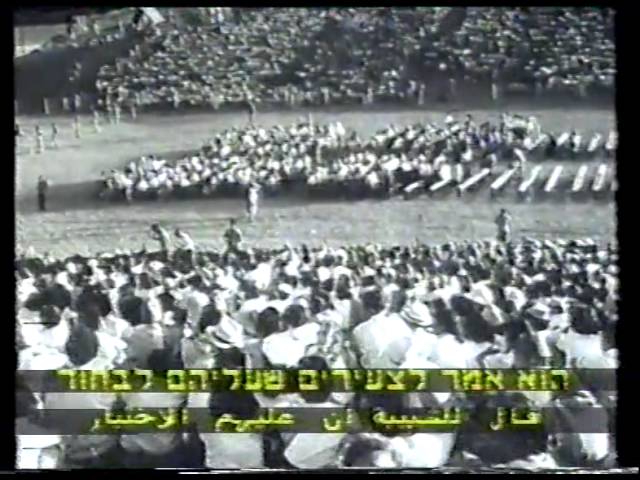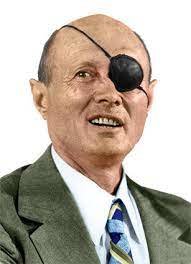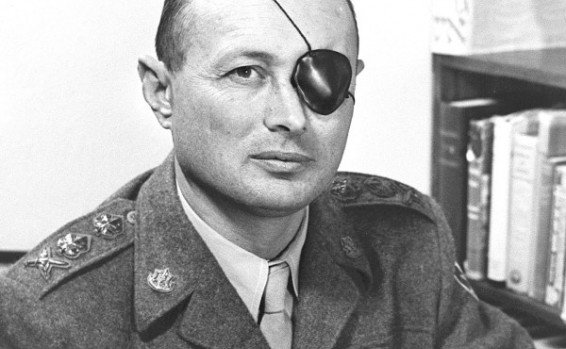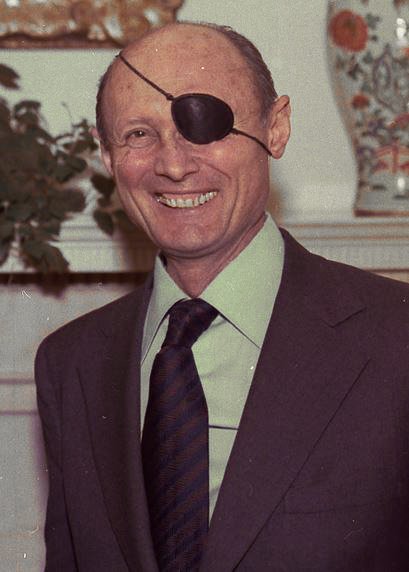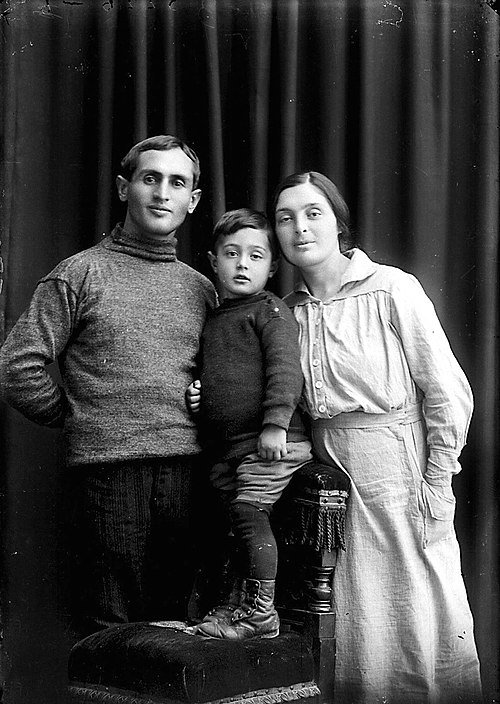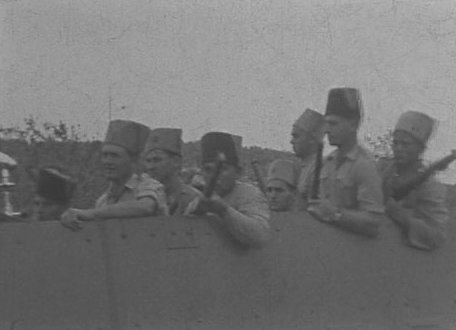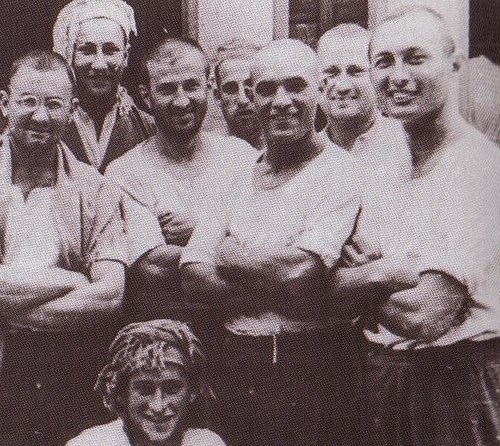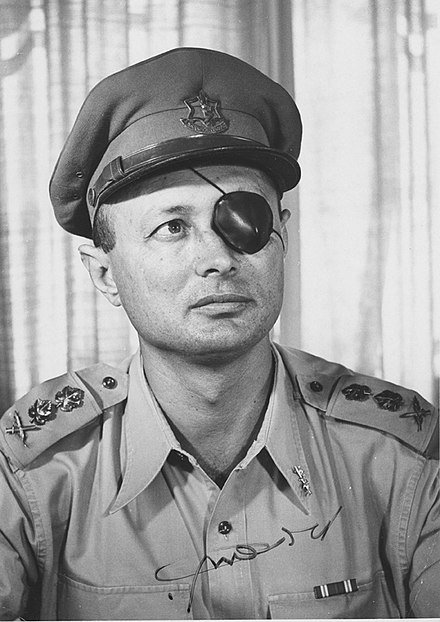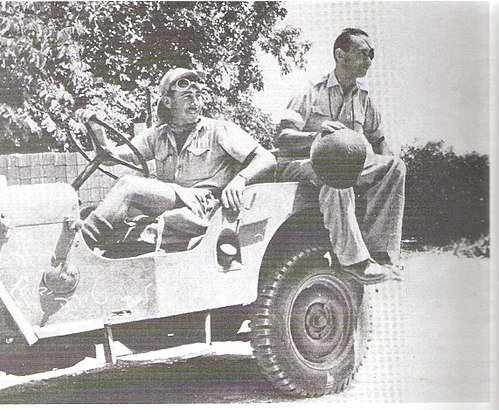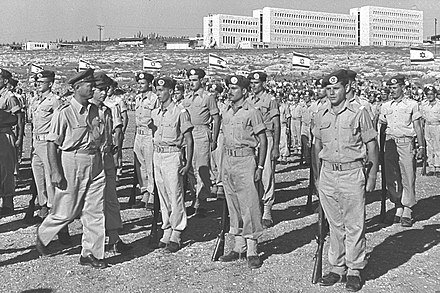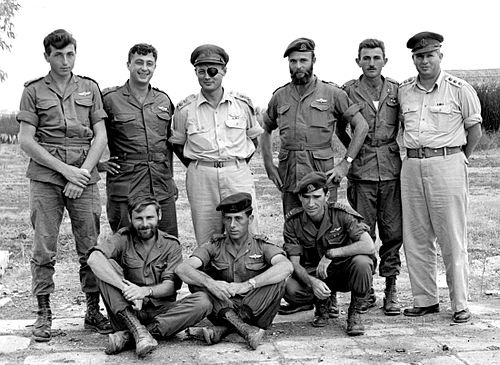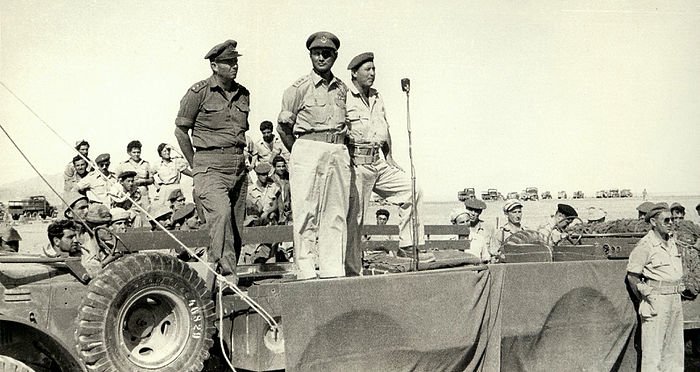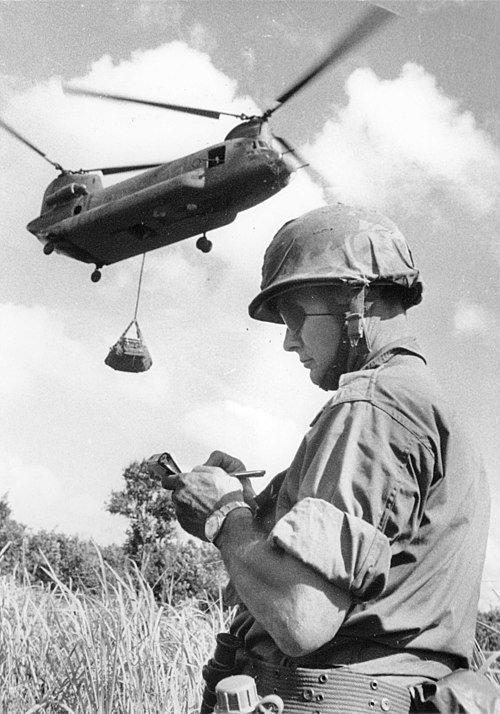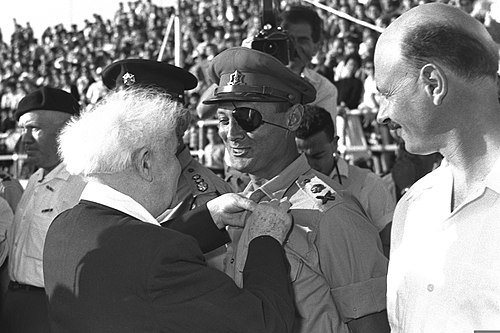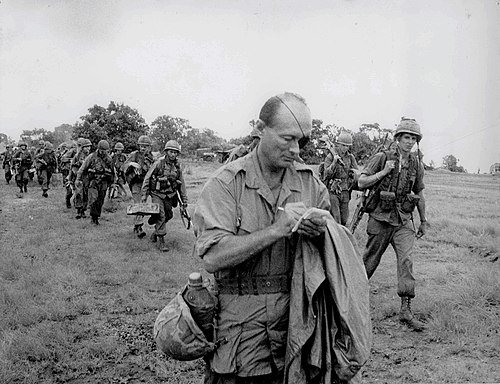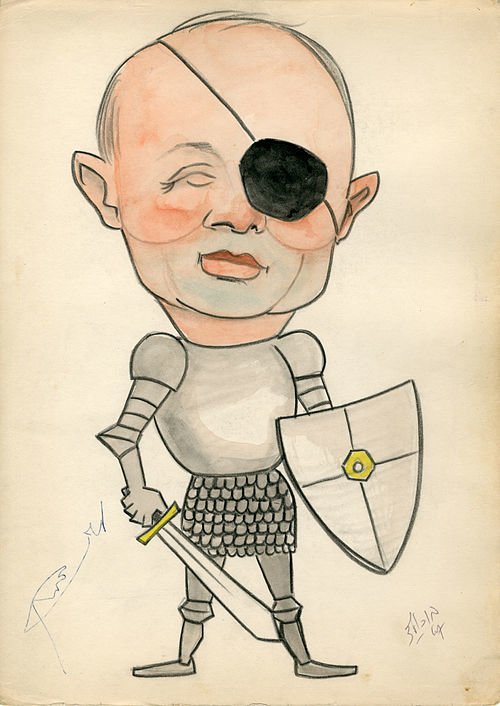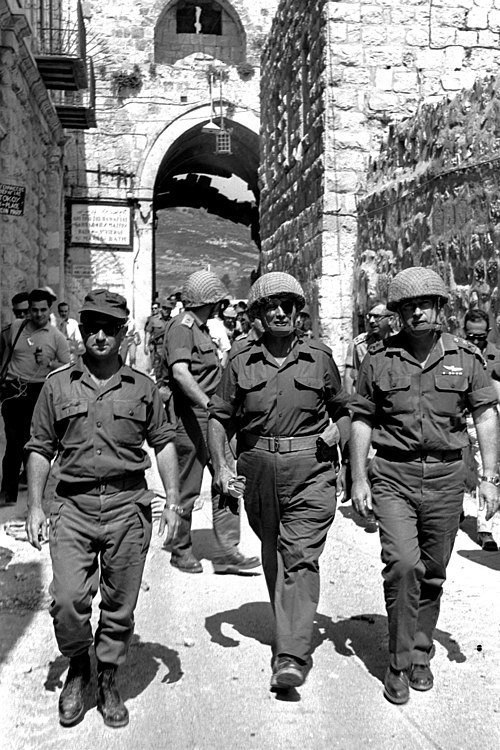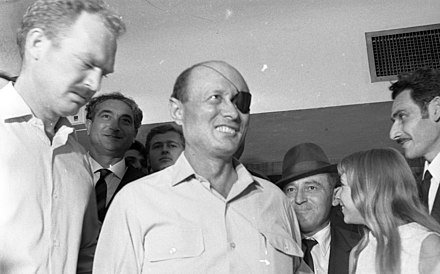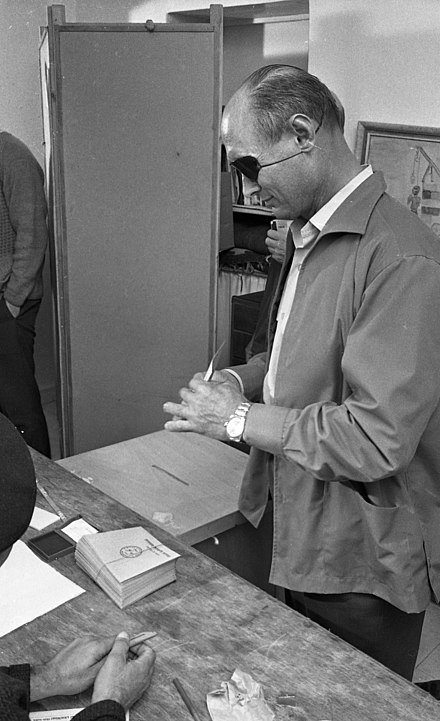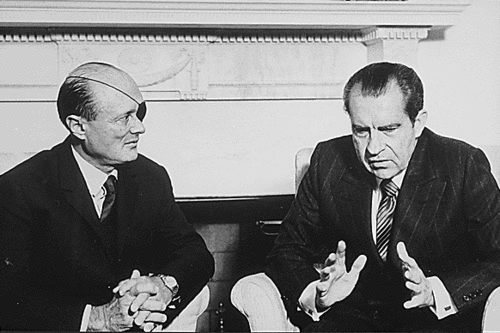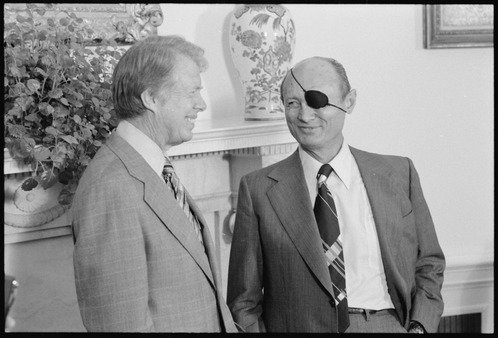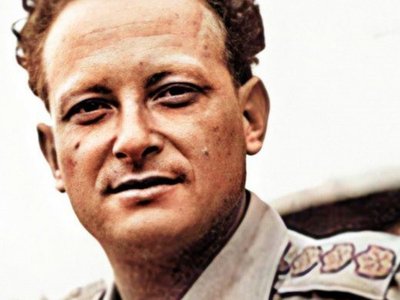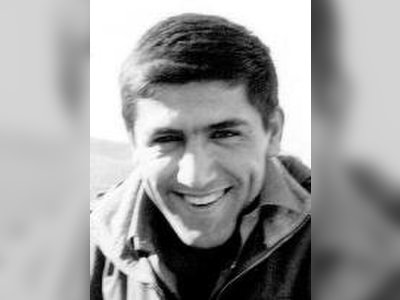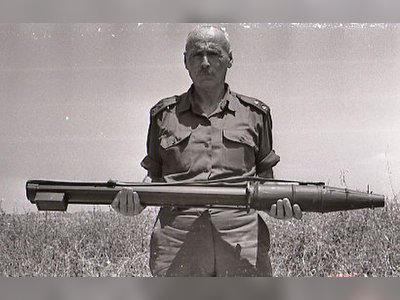מורשת גדולי האומה
בזכותם קיים
beta
Moshe Dayan: The Life and Legacy of an Israeli Icon
Moshe Dayan's life was a testament to the complex and often tumultuous history of Israel in its early years. From his roots as a pioneering settler's son in the Second Aliyah to his prominent roles in Israel's military and political leadership, Dayan left an indelible mark on the nation's history. His legacy, marked by both controversy and admiration, continues to be a subject of study and debate in Israel and around the world.
Moshe Dayan, born on May 20, 1915, was a prominent figure in Israeli history, renowned as a military strategist, statesman, and public servant. His journey from a young officer in the Haganah and the Palmach to becoming the fourth Chief of Staff of the Israel Defense Forces (IDF), during the critical Operation Kadesh, shaped Israel's early years. Beyond his military career, Dayan served as a Member of the Knesset (Israeli Parliament) and held the position of Defense Minister during the Six-Day War, the Yom Kippur War, and played a pivotal role in the peace negotiations with Egypt under Prime Minister Menachem Begin.
Early Life and Background
Moshe Dayan was born in Degania, a pioneering kibbutz in the Second Aliyah, to parents Samuel Dayan and Devorah Zlotowski. He was the eldest of two children, with a sister, Avivah (the mother of Yonatan Geffen), and a brother, Zohar. Dayan was named after Moshe Barski, one of the early settlers at Degania, who tragically fell victim to Bedouin raiders in November 1913 while attempting to bring medicine to his father, Samuel Dayan, who was bedridden.
At the age of six, Dayan's family joined the first working settlers' nucleus in Nahalal, and this move marked the beginning of his lifelong connection to the Zionist pioneering spirit.
Formative Years
Dayan received his elementary education at the local school in Nahalal, and later, he attended the Agricultural School, even though it was designated for girls at the time. In his youth, Dayan actively participated in the security missions of the kibbutz and joined the Haganah at the age of 15 during the 1930 Arab riots.
In 1936, during the Arab Revolt (known as the Great Arab Revolt), Dayan was arrested and tried for illegal possession of firearms as part of the Haganah. He was sentenced to ten years in prison, commencing his sentence in Acre Prison and then being transferred to the Sarafand detention camp.
World War II and Liberation
World War II shifted the British attitude towards Jewish support, and collaboration between the British Army and Jewish paramilitary organizations grew. Dayan's release was negotiated as part of an agreement between the Jewish leadership and British authorities in February 1941. He emerged from prison in the midst of a tumultuous Middle East, with the Rashid Ali al-Gaylani revolt in Iraq, Axis forces advancing towards Egypt and Palestine, and the Free French Forces clashing with the Vichy French in Syria and Lebanon.
During this time, Dayan became a leader of the Jewish paramilitary force known as the Palmach, where he acquired the offensive military skills that would define his future career. In June 1941, as part of the British offensive into Syria and Lebanon, Dayan was sent with a small unit to the northern coast of Palestine to prevent the destruction of bridges by the French Vichy forces.
Post-World War II and the 1947 UN Partition Plan
After the war, Dayan moved to Tel Aviv, and in December 1946, he traveled to Basel to serve as a delegate in the Zionist Congress. During these years (1939-1945), Dayan had three children - Ya'el, Ehud (Udi), and Asaf (Asi).
In February 1947, he was appointed as the "Officer for Arab Affairs" by Jacob Dori, who was then the Haganah's chief of staff (later becoming the first IDF Chief of Staff). It was clear that Israel's War of Independence was imminent.
The War of Independence
In April 1948, following the Battle of Ramat Yohanan, Dayan engaged in secret negotiations with Druze officers in the Salvation Army of Syria to establish a blood pact of cooperation between the Druze and the Jewish fighters. These negotiations took place shortly after Dayan's own brother, Zorik, was killed in action against Druze fighters during the Ramat Yohanan battle. The negotiations ultimately led to collaboration between the Druze and Jewish forces.
Dayan began the War of Independence as a staff officer, holding the rank of Major alongside Chief of Staff Dori. However, in May 1948, he was sent to command IDF forces in the Jordan Valley, where he played a significant role in thwarting Syrian forces in Degania, his birthplace. Following the Battle of Degania, Dayan was appointed as the commander of Battalion 89, which came to be known as the "Commando Battalion," a unit renowned for its daring and effectiveness.
Capture of Lod and Leadership
In August 1948, Dayan led a bold jeep raid into the city of Lod (Lydda) with his commando battalion. The operation, aimed at preventing the destruction of bridges, resulted in the deaths of nine soldiers and the injury of 17. Opinions on the significance of this raid in the capture of Lod and the subsequent capture of Ramle vary, but it undoubtedly contributed to the change in the course of the war.
Following Operation Danny, Dayan's commando battalion was transferred to the southern front to confront Egyptian forces. On August 1, 1948, Dayan was appointed as the commander of the Southern Front and promoted to the rank of Brigadier General. Due to uncertainty regarding his authority in Jerusalem compared to Aluf (Major General) David Shaltiel, the Chief of the Central Command, a special committee decided to appoint Dayan as both the commander of Jerusalem and a major general, making him one of the highest-ranking officers in the IDF.
Later Years and Legacy
As the war came to an end, Dayan's distinguished career continued. He served as a Member of the Knesset, Minister of Agriculture, Minister of Defense, and Minister of Foreign Affairs in various Israeli governments. Dayan's political and military acumen, along with his distinctive eyepatch, became iconic symbols of Israel's early history. Despite controversy surrounding his personal life and behavior, many preferred to see him for his military and diplomatic achievements, and his contributions played a crucial role in shaping Israel during its formative decades.
Early Life and Background
Moshe Dayan was born in Degania, a pioneering kibbutz in the Second Aliyah, to parents Samuel Dayan and Devorah Zlotowski. He was the eldest of two children, with a sister, Avivah (the mother of Yonatan Geffen), and a brother, Zohar. Dayan was named after Moshe Barski, one of the early settlers at Degania, who tragically fell victim to Bedouin raiders in November 1913 while attempting to bring medicine to his father, Samuel Dayan, who was bedridden.
At the age of six, Dayan's family joined the first working settlers' nucleus in Nahalal, and this move marked the beginning of his lifelong connection to the Zionist pioneering spirit.
Formative Years
Dayan received his elementary education at the local school in Nahalal, and later, he attended the Agricultural School, even though it was designated for girls at the time. In his youth, Dayan actively participated in the security missions of the kibbutz and joined the Haganah at the age of 15 during the 1930 Arab riots.
In 1936, during the Arab Revolt (known as the Great Arab Revolt), Dayan was arrested and tried for illegal possession of firearms as part of the Haganah. He was sentenced to ten years in prison, commencing his sentence in Acre Prison and then being transferred to the Sarafand detention camp.
World War II and Liberation
World War II shifted the British attitude towards Jewish support, and collaboration between the British Army and Jewish paramilitary organizations grew. Dayan's release was negotiated as part of an agreement between the Jewish leadership and British authorities in February 1941. He emerged from prison in the midst of a tumultuous Middle East, with the Rashid Ali al-Gaylani revolt in Iraq, Axis forces advancing towards Egypt and Palestine, and the Free French Forces clashing with the Vichy French in Syria and Lebanon.
During this time, Dayan became a leader of the Jewish paramilitary force known as the Palmach, where he acquired the offensive military skills that would define his future career. In June 1941, as part of the British offensive into Syria and Lebanon, Dayan was sent with a small unit to the northern coast of Palestine to prevent the destruction of bridges by the French Vichy forces.
Post-World War II and the 1947 UN Partition Plan
After the war, Dayan moved to Tel Aviv, and in December 1946, he traveled to Basel to serve as a delegate in the Zionist Congress. During these years (1939-1945), Dayan had three children - Ya'el, Ehud (Udi), and Asaf (Asi).
In February 1947, he was appointed as the "Officer for Arab Affairs" by Jacob Dori, who was then the Haganah's chief of staff (later becoming the first IDF Chief of Staff). It was clear that Israel's War of Independence was imminent.
The War of Independence
In April 1948, following the Battle of Ramat Yohanan, Dayan engaged in secret negotiations with Druze officers in the Salvation Army of Syria to establish a blood pact of cooperation between the Druze and the Jewish fighters. These negotiations took place shortly after Dayan's own brother, Zorik, was killed in action against Druze fighters during the Ramat Yohanan battle. The negotiations ultimately led to collaboration between the Druze and Jewish forces.
Dayan began the War of Independence as a staff officer, holding the rank of Major alongside Chief of Staff Dori. However, in May 1948, he was sent to command IDF forces in the Jordan Valley, where he played a significant role in thwarting Syrian forces in Degania, his birthplace. Following the Battle of Degania, Dayan was appointed as the commander of Battalion 89, which came to be known as the "Commando Battalion," a unit renowned for its daring and effectiveness.
Capture of Lod and Leadership
In August 1948, Dayan led a bold jeep raid into the city of Lod (Lydda) with his commando battalion. The operation, aimed at preventing the destruction of bridges, resulted in the deaths of nine soldiers and the injury of 17. Opinions on the significance of this raid in the capture of Lod and the subsequent capture of Ramle vary, but it undoubtedly contributed to the change in the course of the war.
Following Operation Danny, Dayan's commando battalion was transferred to the southern front to confront Egyptian forces. On August 1, 1948, Dayan was appointed as the commander of the Southern Front and promoted to the rank of Brigadier General. Due to uncertainty regarding his authority in Jerusalem compared to Aluf (Major General) David Shaltiel, the Chief of the Central Command, a special committee decided to appoint Dayan as both the commander of Jerusalem and a major general, making him one of the highest-ranking officers in the IDF.
Later Years and Legacy
As the war came to an end, Dayan's distinguished career continued. He served as a Member of the Knesset, Minister of Agriculture, Minister of Defense, and Minister of Foreign Affairs in various Israeli governments. Dayan's political and military acumen, along with his distinctive eyepatch, became iconic symbols of Israel's early history. Despite controversy surrounding his personal life and behavior, many preferred to see him for his military and diplomatic achievements, and his contributions played a crucial role in shaping Israel during its formative decades.
- משה דיין – ויקיפדיהhe.wikipedia.org
